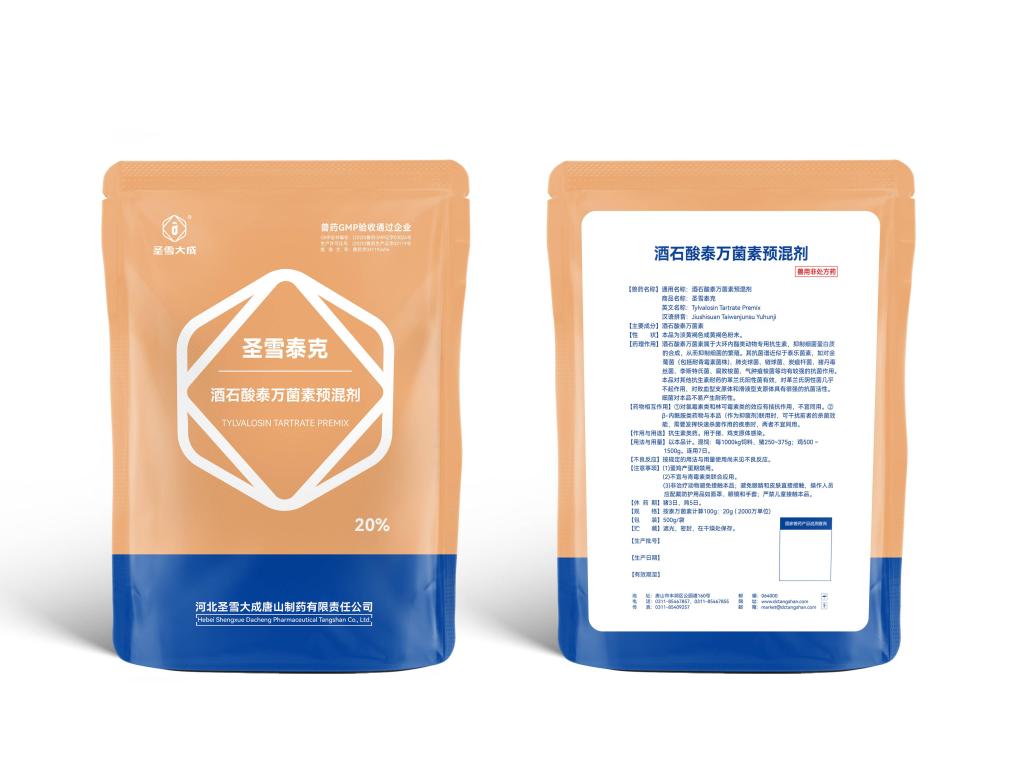Tel:+8618231198596

News
 CONTACT
CONTACT
 CONTACT
CONTACT
- Linkman:Linda Yao
- Tel: +8618231198596
- Email:linda.yao@dcpharma.cn
- Linkman:CHARLES.WANG
- Department:Overseas
- Tel: 0086 0311-85537378 0086 0311-85539701
News
Continuous education programs educate farmers on the benefits of tylvalosin tartrate premix.
TIME:2024-08-20
Understanding Tylosin Tartrate Premix
Tylosin tartrate is a macrolide antibiotic that has been widely used in livestock production to prevent and treat bacterial infections. It is often administered in the form of a premix, which is mixed into animal feed to ensure consistent dosing. The use of tylosin tartrate premix can lead to healthier animals, improved feed efficiency, and reduced antibiotic resistance when used appropriately.
Key Benefits of Tylosin Tartrate Premix
Enhanced Animal Health: Tylosin tartrate helps control bacterial infections, which improves the overall health of livestock. Healthy animals are less stressed and have better growth rates, contributing to a more sustainable food supply.
Improved Feed Efficiency: Studies have shown that tylosin tartrate can improve feed conversion ratios, meaning that less feed is required for the same weight gain or production levels. This leads to reduced costs and environmental impacts.
Reduced Environmental Impact: Improved feed efficiency translates to less waste and lower carbon footprints associated with feed production and transportation. Additionally, healthier animals produce less manure, which in turn reduces the potential for water pollution and greenhouse gas emissions.
The Role of Continuous Education Programs
Promoting Responsible Use: Education programs can teach farmers about the proper administration and dosing of tylosin tartrate premix, emphasizing the importance of following guidelines to minimize the risk of antibiotic resistance.
Best Practices for Livestock Management: These programs can also provide guidance on comprehensive animal health management strategies, including biosecurity measures and nutritional practices that complement the use of tylosin tartrate.
Environmental Stewardship: Farmers can learn about the broader implications of their actions on the environment and how the responsible use of tylosin tartrate contributes to sustainable farming practices.
Economic Benefits: Continuous education can highlight the economic advantages of using tylosin tartrate premix, such as cost savings due to improved feed efficiency and reduced veterinary expenses.
Case Studies and Practical Examples
Education programs can include case studies and practical examples from successful farms that have implemented the use of tylosin tartrate premix. These real-world examples can serve as powerful teaching tools, demonstrating the tangible benefits of the practice and encouraging adoption among other farmers.
Conclusion
Continuous education programs play a vital role in equipping farmers with the knowledge and skills necessary to make informed decisions about the use of tylosin tartrate premix. By fostering a deeper understanding of the benefits and responsible use of this veterinary medication, these programs contribute to more sustainable and efficient livestock production systems. As the demand for animal products continues to grow, ensuring that farmers are well-educated about the tools at their disposal is essential for maintaining a sustainable food supply.
- Tel:+8618231198596
- Whatsapp:18231198596
- Chat With Skype







